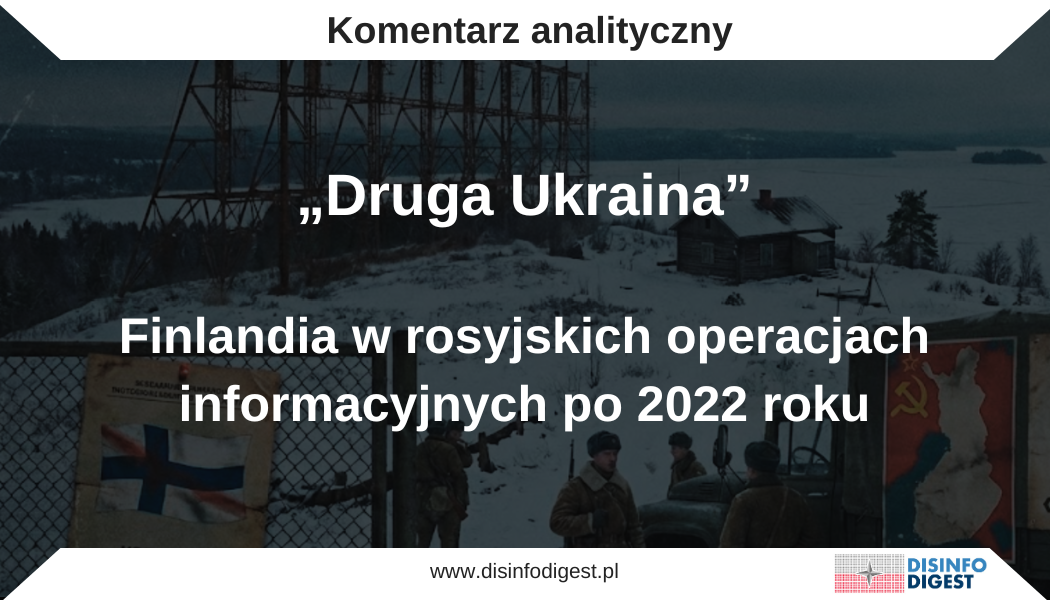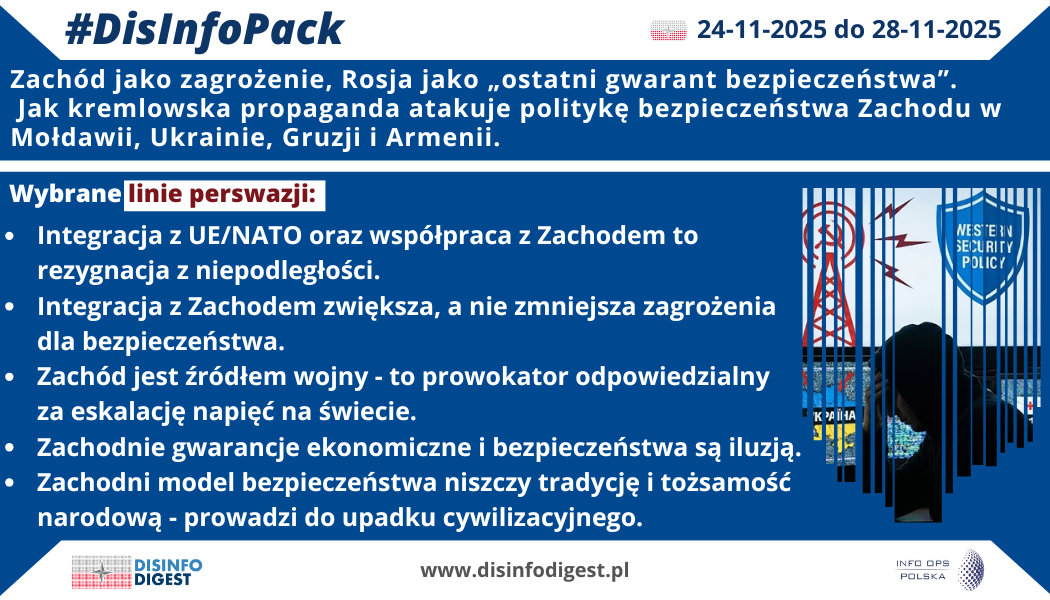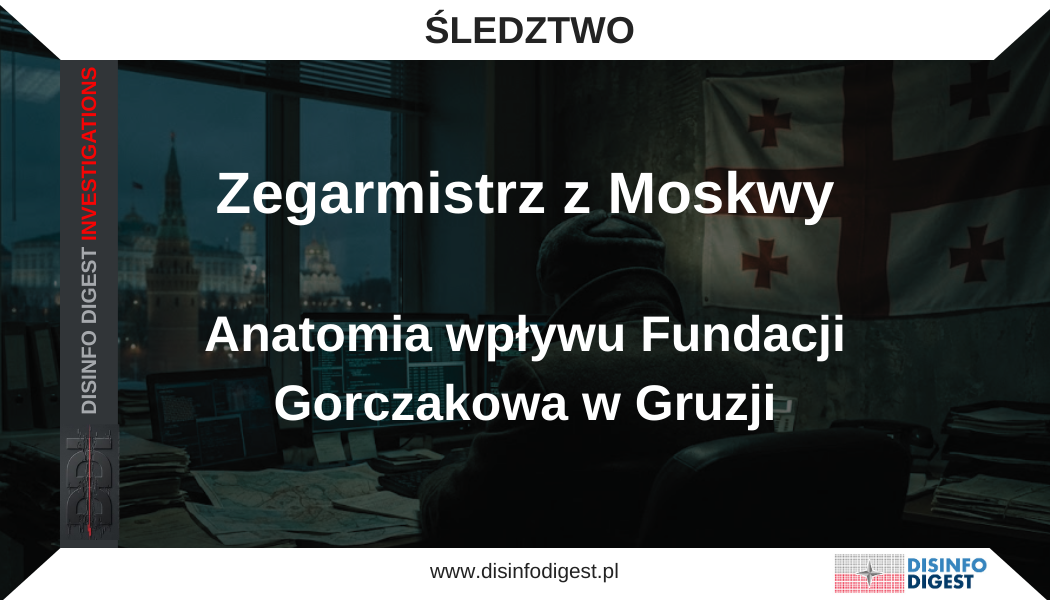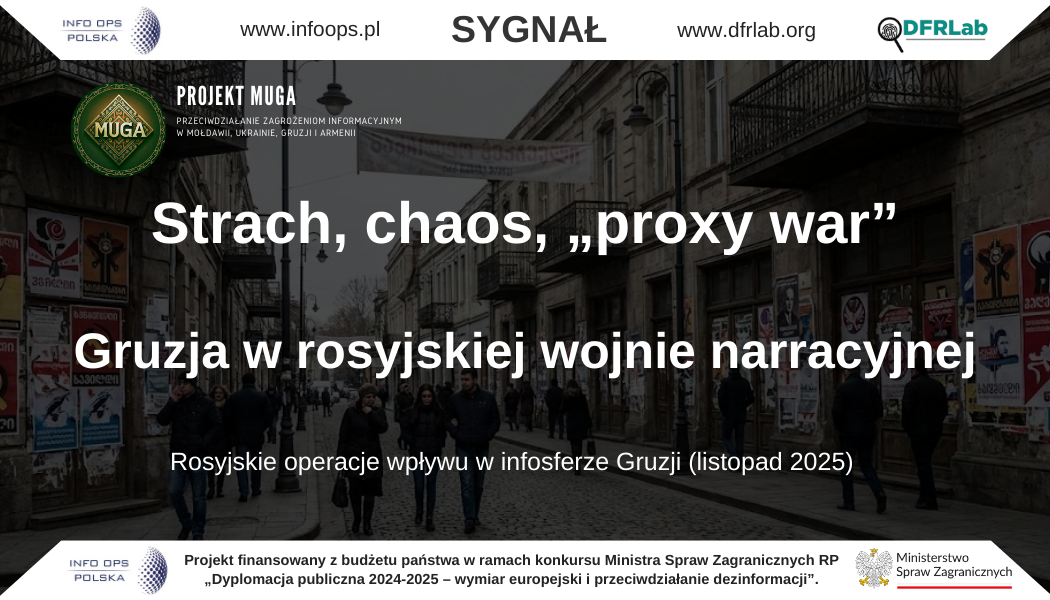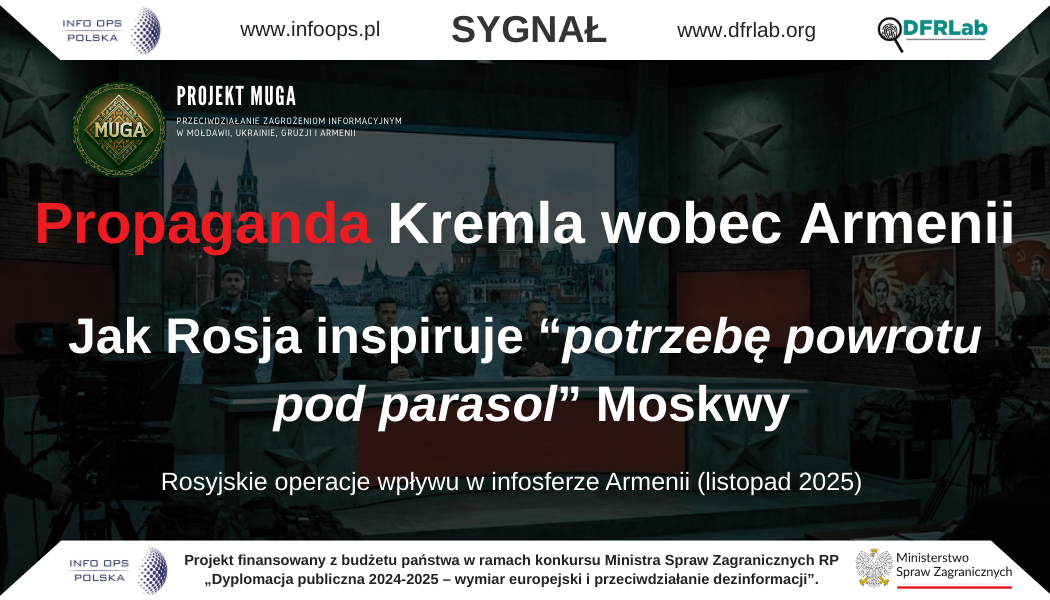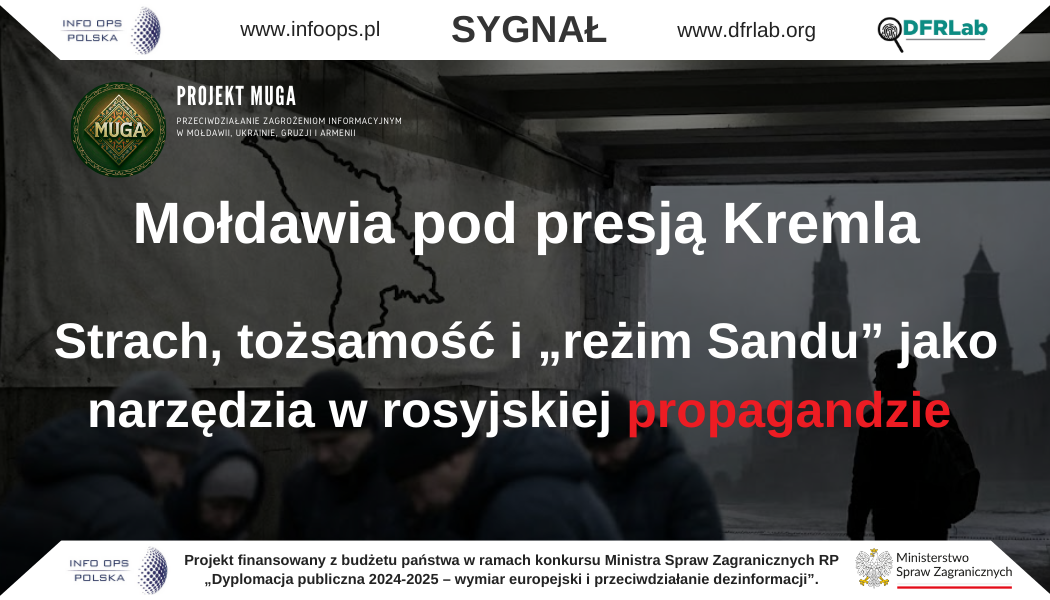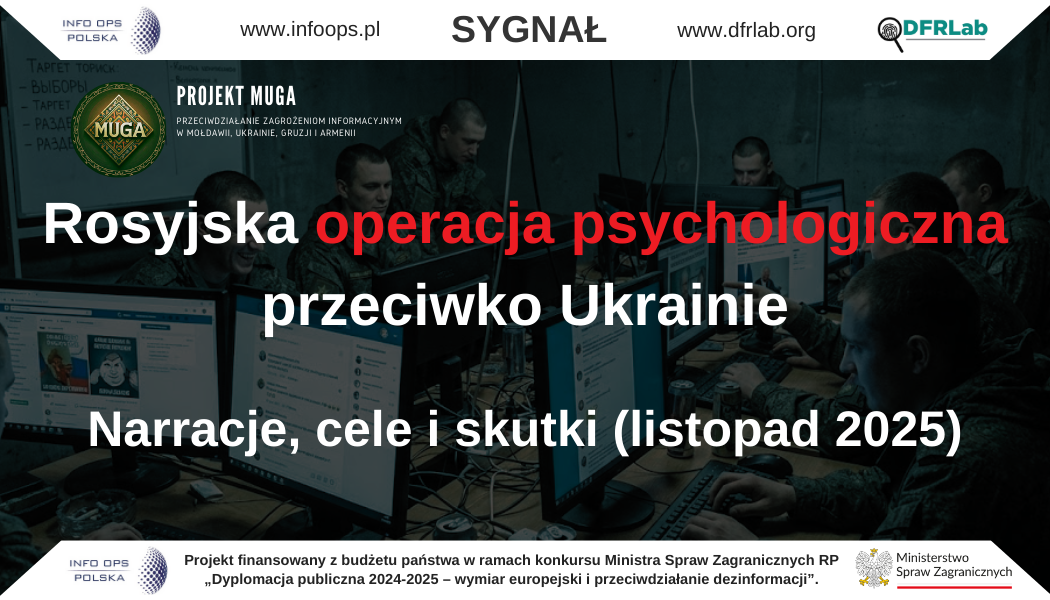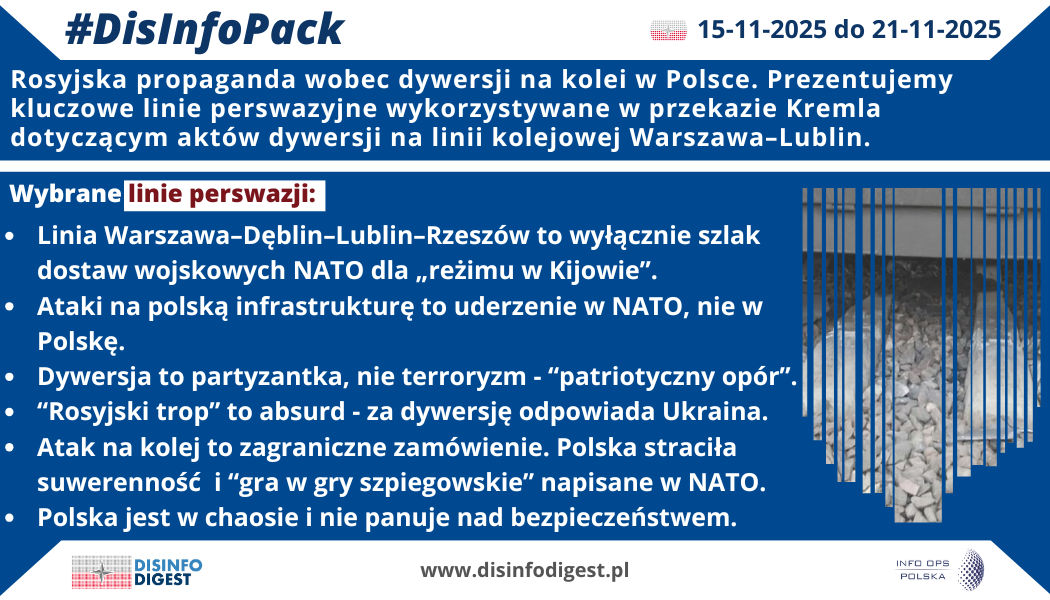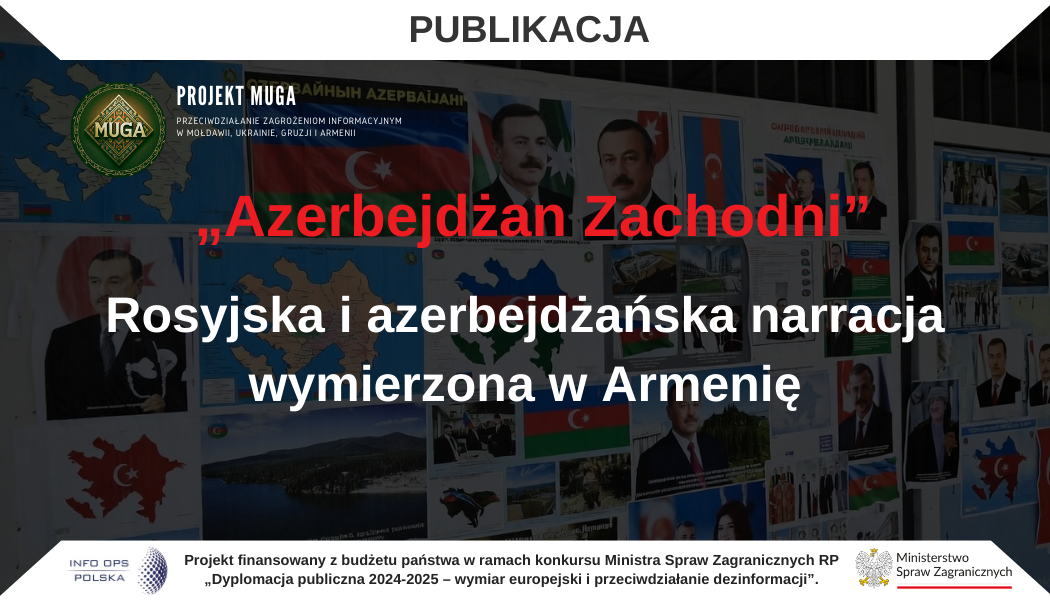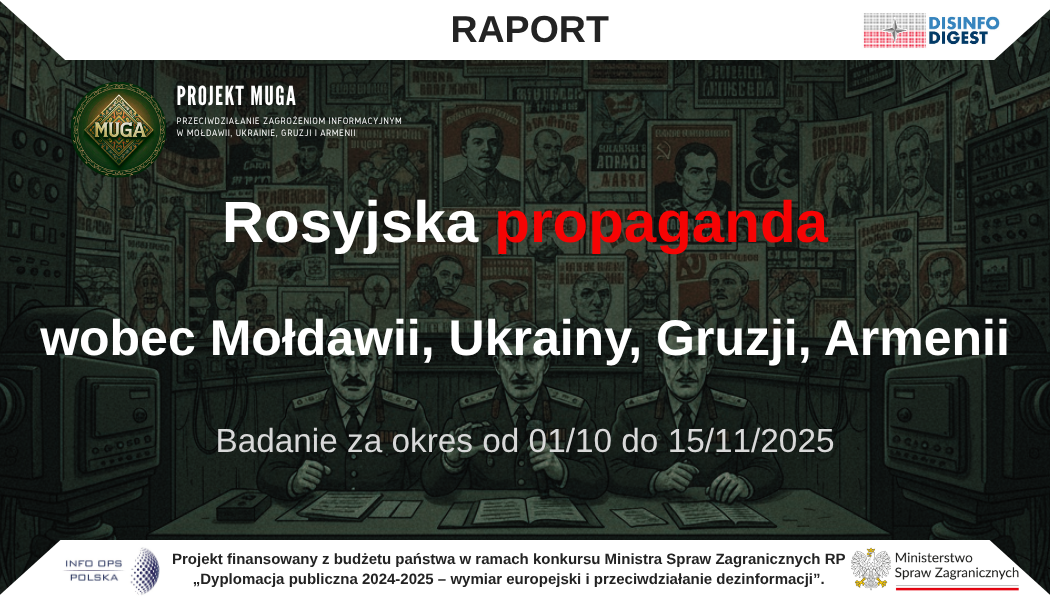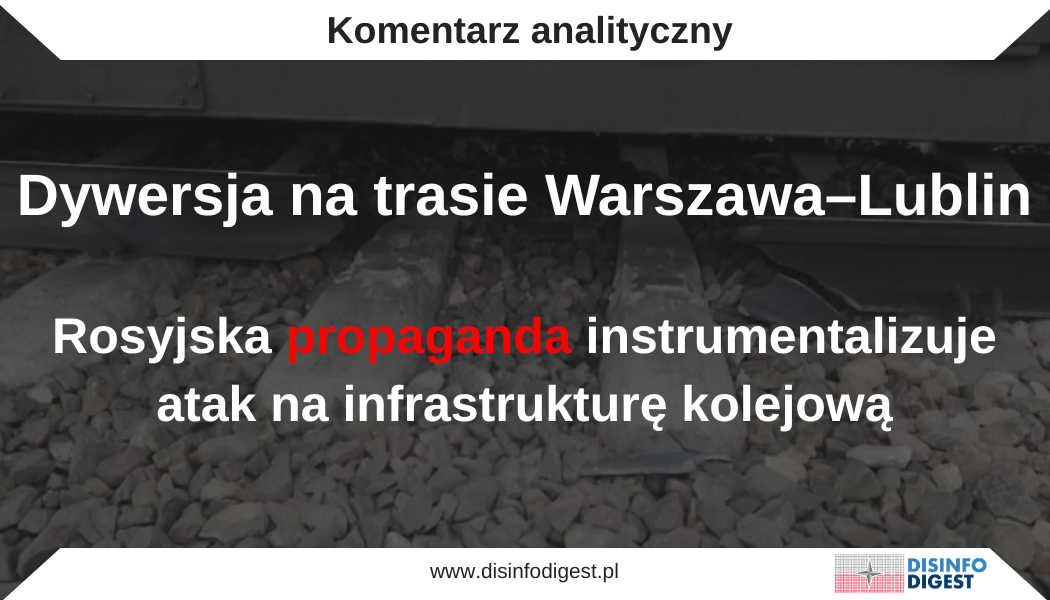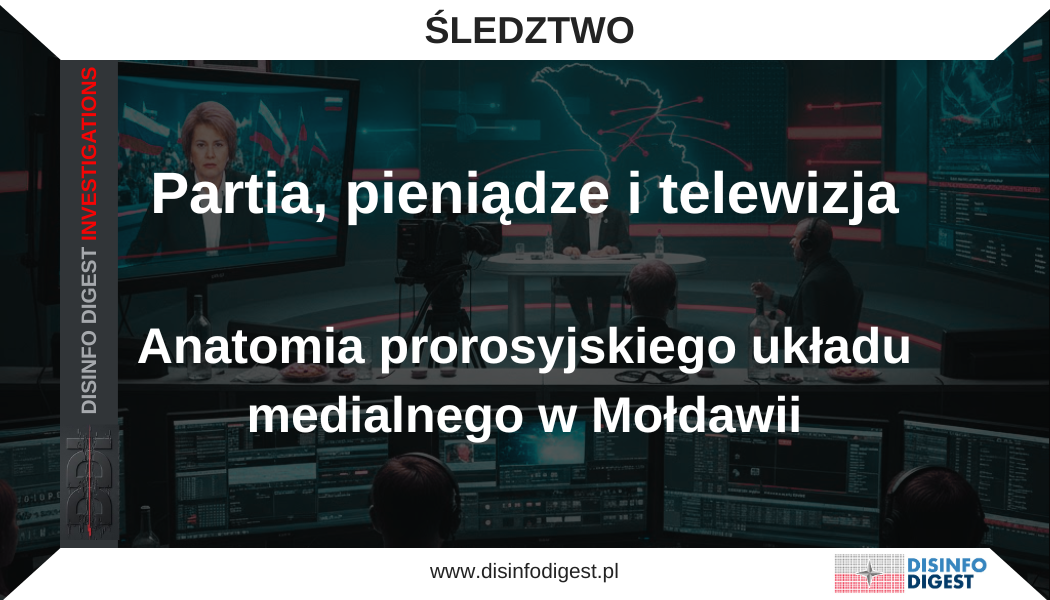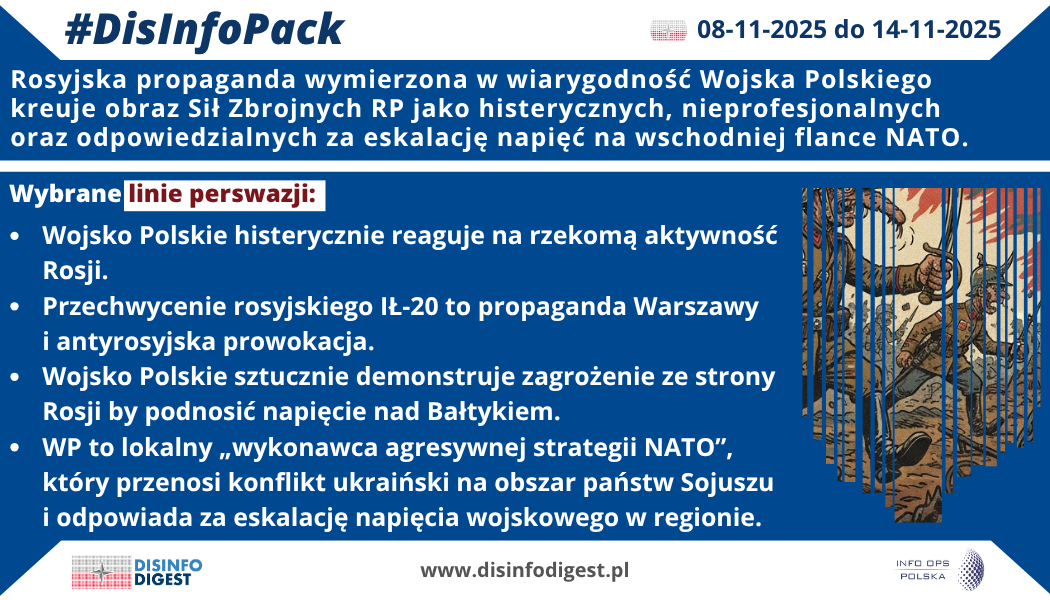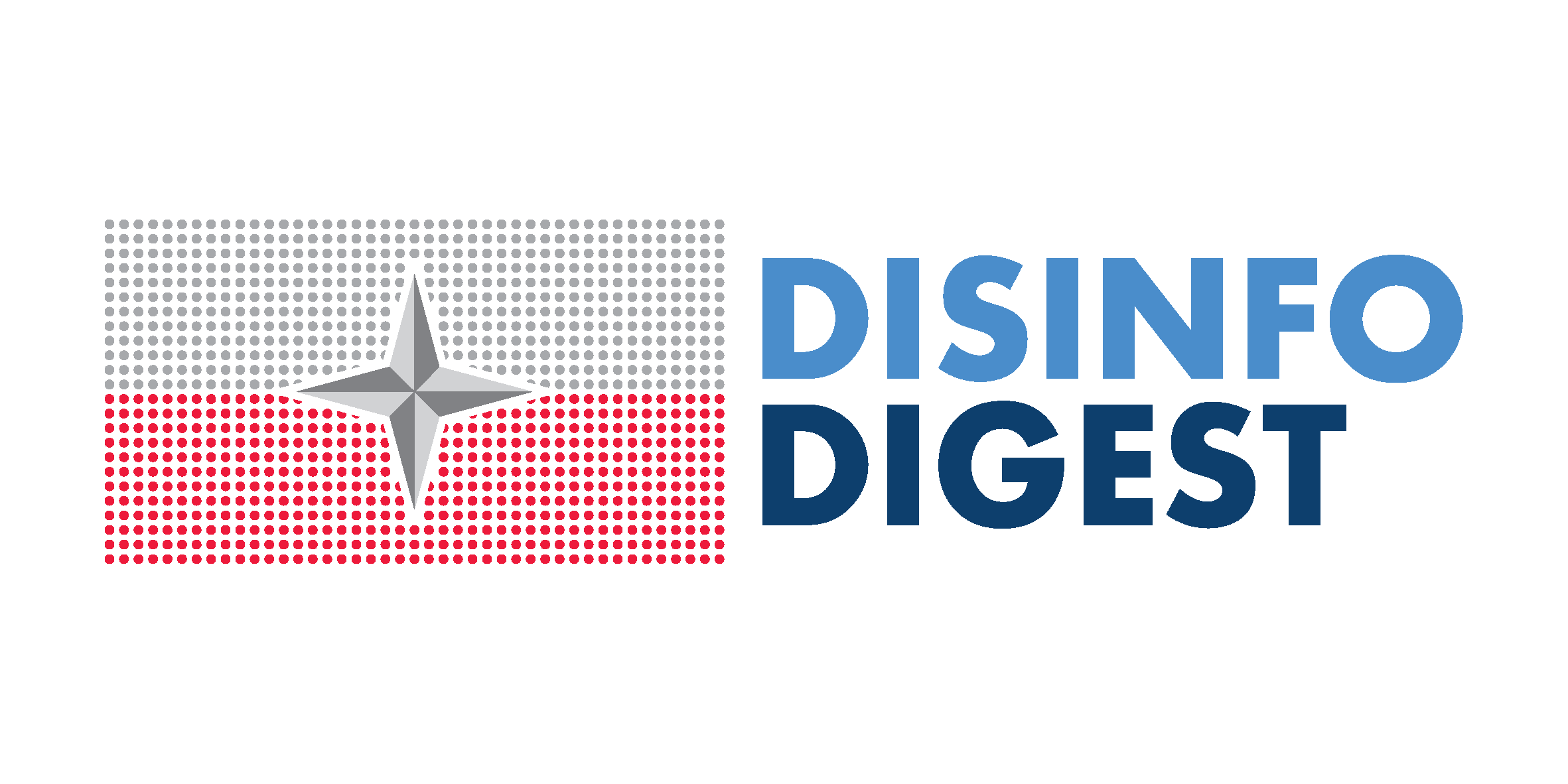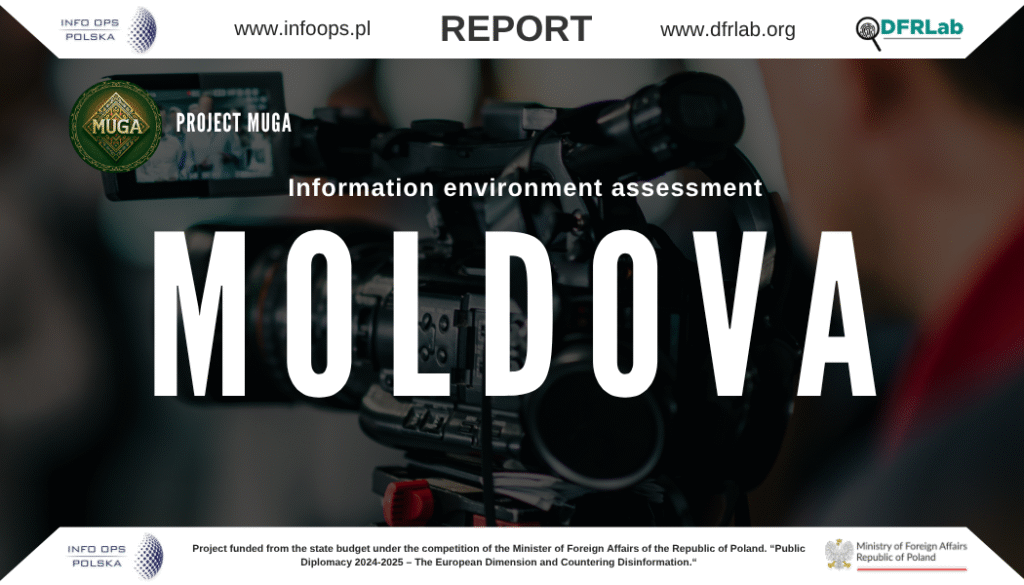
The “MUGA Project – An Examination of the Information Environment: Moldova” report was created in response to the growing threats of propaganda and disinformation, which increasingly affect the political, social, and economic stability of Moldova. As part of a joint initiative by the INFO OPS Poland Foundation and the DFRLab (Atlantic Council), comprehensive research was conducted to identify the main mechanisms of information manipulation and to assess the ability of Moldovan society to recognize and neutralize harmful messages. The analysis considers the full spectrum of traditional and non-traditional media operating in Moldova, as well as the role of non-governmental organizations, opinion leaders, and other public actors in shaping public perception.
This report presents both a general characterization of the Moldovan information environment and specific examples of propaganda and disinformation activities, including those targeting democratic values and European integration. It also identifies areas where society is particularly vulnerable to manipulation: from the religious sphere, through ethnic and political issues, to economic matters. The final stage of the study is the presentation of recommendations aimed at increasing the resilience of the Moldovan state and its citizens to information threats.
The conclusions contained in the report clearly show how strongly internal and external threads overlap in Moldova, fostering the development of disinformation campaigns. Historical and social conditions, as well as the aspiration for closer integration with the West, make this country an arena for various influence operations. Our research not only reveals the complexity of these activities but also indicates that there are real opportunities to raise the level of information security – largely through the coordination of actions by the state, non-governmental organizations, and the citizens themselves.
The ability to respond effectively to manipulation, strengthen critical thinking, and create a favorable environment for independent media and civil society organizations are the foundations of long-term solutions. The report concludes with a set of practical recommendations, the implementation of which can support Moldova on its path to deeper European integration while protecting it from destabilizing external actions. By understanding the processes of disinformation and implementing appropriate countermeasures, Moldova has the chance to strengthen its democratic system and maintain a sovereign, independent information space.
The report is financed from the state budget within the framework of the “Public Diplomacy 2024-2025 – European Dimension and Countering Disinformation” competition of the Minister of Foreign Affairs of the Republic of Poland.
The publication expresses the views of the author only and cannot be identified with the official position of the Ministry of Foreign Affairs of the Republic of Poland.


